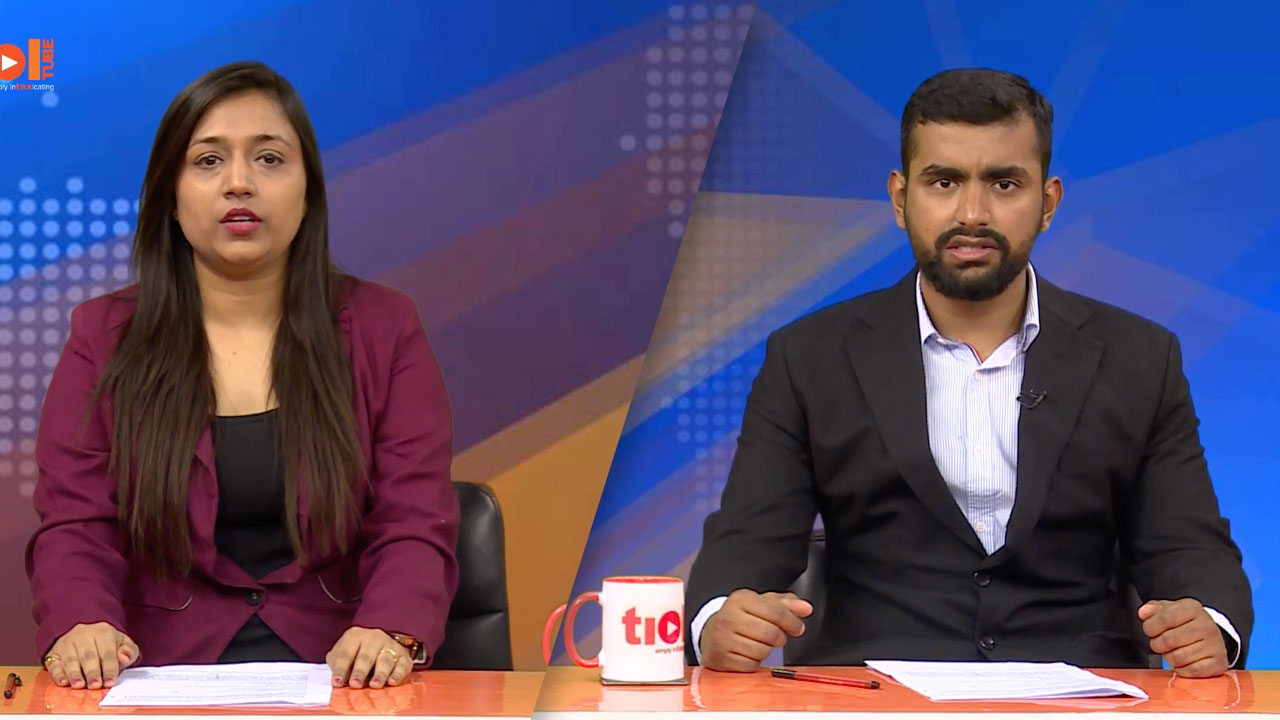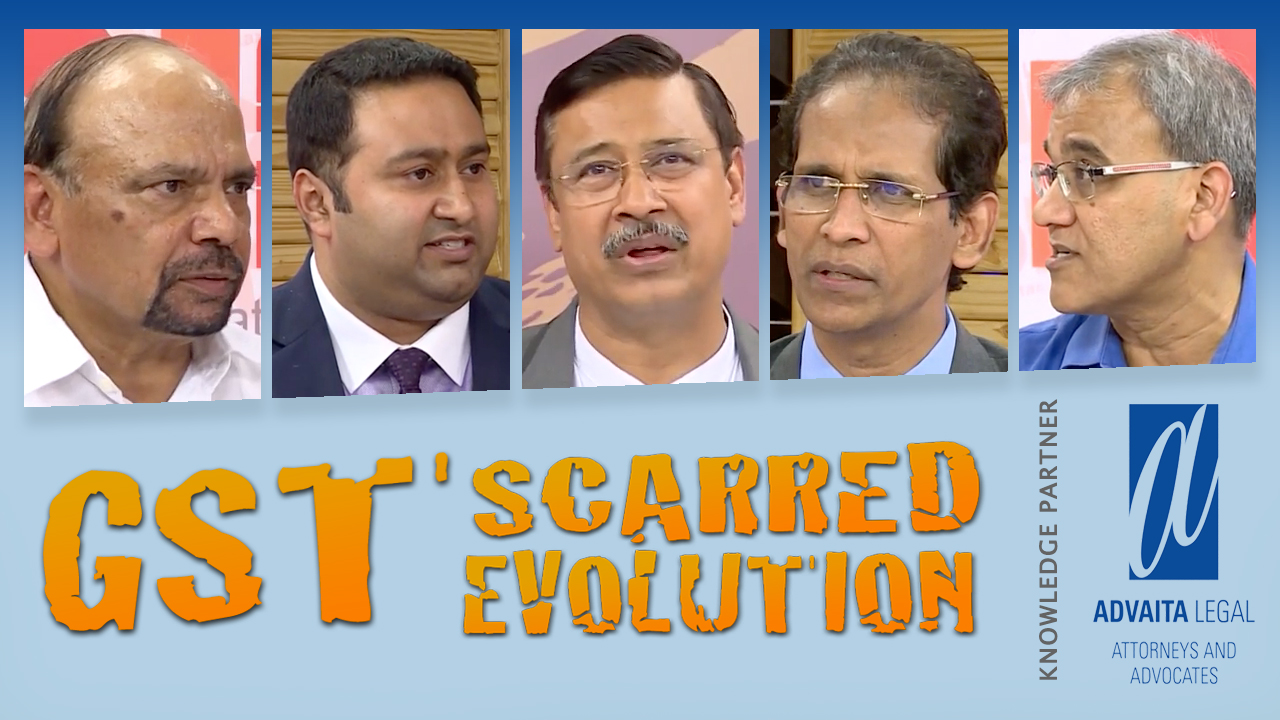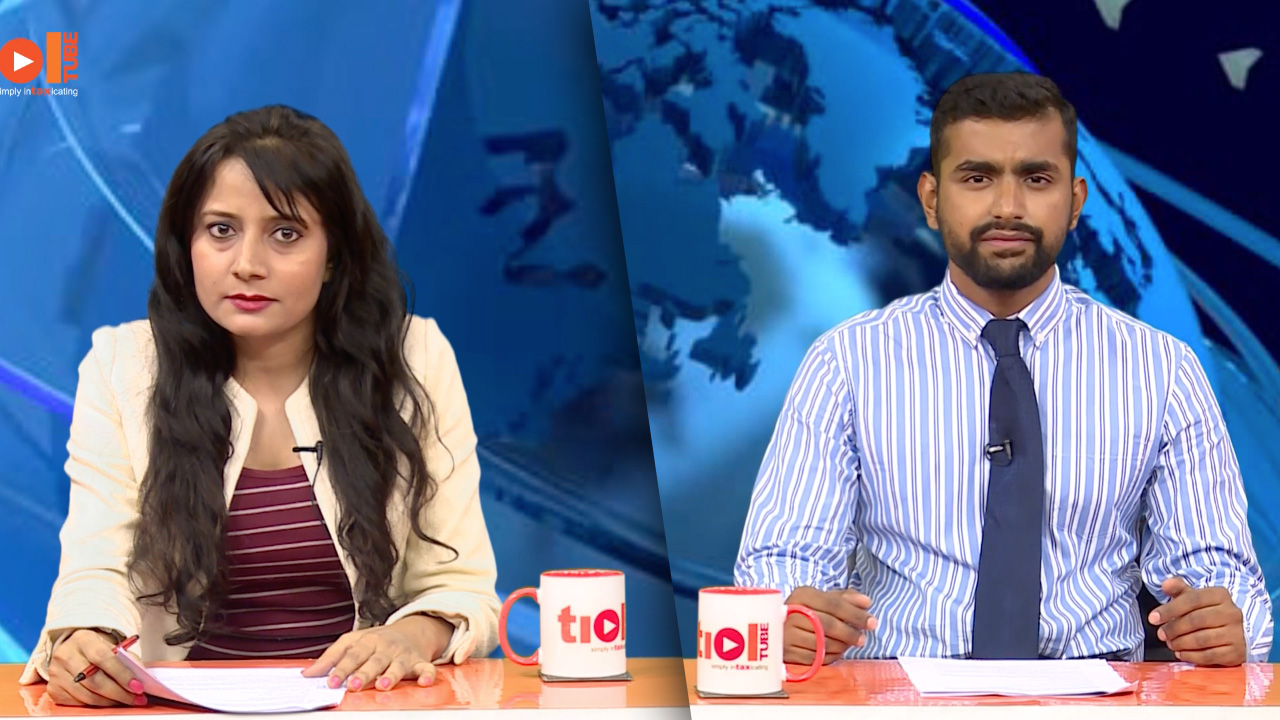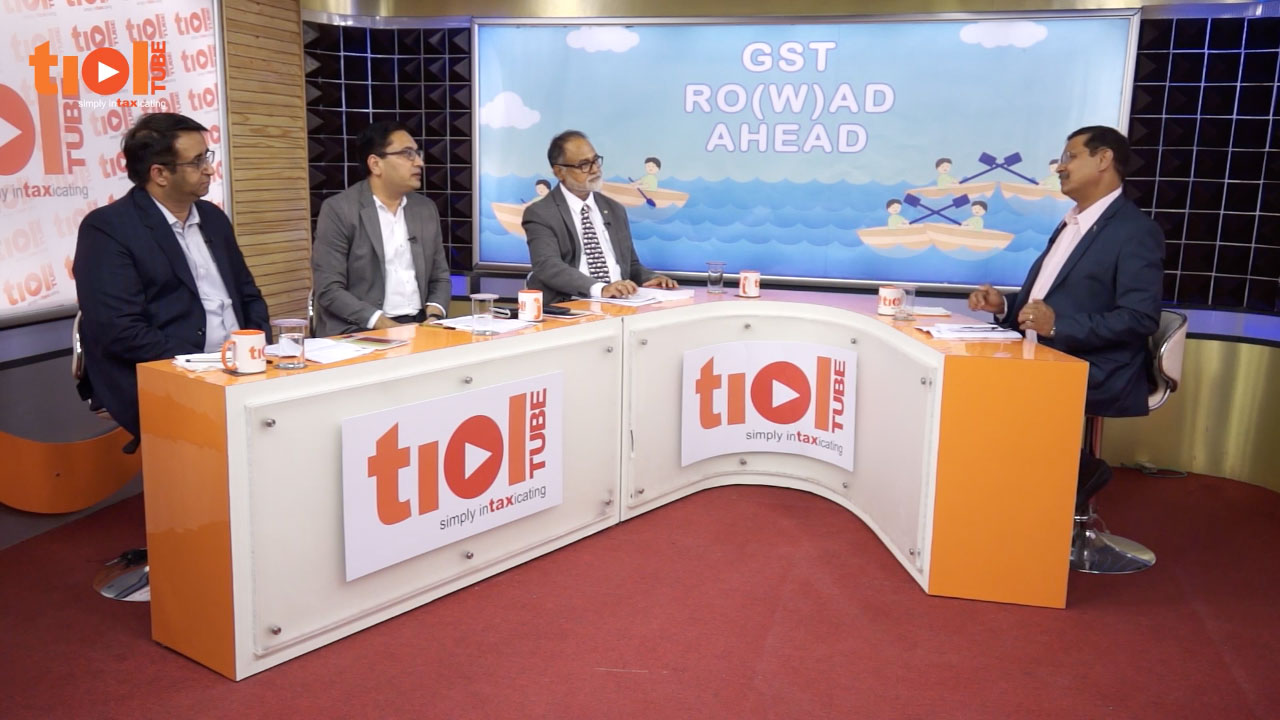SERVICE TAX
2018-TIOL-3296-CESTAT-MUM + Case Story
Tahnee Heights Co-Operative Housing Society Ltd Vs Commissioner of CGST
ST - Appellant is a co-operative society and is duly incorporated under the Act of 1960 - Incorporated association and its members being one and the same, the activities undertaken or the services provided by the former will not be considered as a service, exigible to service tax under the principle of mutuality – Explanation furnished under clause 3(a) in Section 65B of the Act will not designate the appellant as an entity, separate from its members - members of the appellant's society contribute towards maintenance and up-keep of the building and common expenses, as per the bye-laws adopted by the society under the Act of 1960 - Fact is also not under dispute that the appellant do not provide any facilities or advantages for subscription or any other amount paid - Furthermore, the purpose for which the appellant's society was incorporated, clearly demonstrate that it is not at all providing any service to its members and the share of contribution is to meet various purposes - case of the appellant is not confirming to the requirement of 'service', as per the definition contained in Section 65B(44) of the Act - activities undertaken by the appellant does not fall within the scope and ambit of taxable service, for payment of service tax - service tax amount paid eligible for refund – impugned order set aside and appeals allowed: CESTAT [para 6 to 11]
- Appeals allowed
: MUMBAI CESTAT
2018-TIOL-3290-CESTAT-MAD
Mahindra Holiday and Resorts India Ltd Vs Commissioner of GST & CE
ST - The assessee is engaged in providing taxable services of club or association services and are also registered for services such as health and fitness service, tour operator service, air and railway travel agency service - They had availed common input services for taxable service as well as for trading - Since they had not maintained separate accounts, department was of the opinion that the credit availed in respect of trading is not eligible - The issue that has to be analyzed is only as to what is the amount that the assessee has to reverse when common input services have been used for taxable service as well as trading when separate accounts have not been maintained - W.e.f. 1.4.2011, the position is very clear for the reason that trading has been made a deemed exempted service and Rule 6(3D)(c) of CENVAT Credit Rules clearly provided for the formula to arrive at the amount that has been reversed - However, for the period prior to 1.4.2011, there was much confusion as to whether trading is an exempted service or can be considered as service at all - Tribunal in the case of TFL Quinn India - 2016-TIOL-856-CESTAT-HYD has adopted the formula that has been laid in CENVAT Credit Rules with effect from 1.4.2011 to be more appropriate to be applied for the period prior to 1.4.2011 also - Tribunal agrees with such view of the Tribunal - Therefore, assessee is required to reverse the credit as per the formula in Rule 6(3D)(c) of CCR, 2004 in respect of trading - However, the said amount has to be quantified - The assessee also contends that they have reversed the said amount pertaining to trading - This requires verification and for its quantification of the amounts that has to be reversed by assessee, applying the ratio laid down in the case of TFL Quinn India , matter remanded to the adjudicating authority - Since the issue was interpretational and mired under litigation for a long time, there cannot be any penalty imposed on assessee - The assessee, however, will be liable to pay interest if any: CESTAT
- Matter remanded: CHENNAI CESTAT
2018-TIOL-3289-CESTAT-MAD
CCE Vs Murugappa Morgan Thermal Ceramics Ltd
ST - The assessee company, engaged in manufacture of Ceramic Fiber Bulk and Ceramic Fiber Products, filed returns for the relevant AY - It received Intellectual Property Service from a company located abroad - The assessee paid royalty to such company - The Department opined that the assessee was liable to pay service tax under Intellectual Property Service - Duty demands were raised for several periods, with interest & imposition of penalties u/s 76, 77 & 78 of FA 1994 - Later, the Commr.(A) partly reduced the duty demanded & set aside penalties imposed u/s 76 & 78 - Hence the appeals by both the Revenue & the assessee.
Held: The transfer of know-how is not a one time affair & so royalty charges were paid in separate periods - Nonetheless, duty demamds with interest are upheld for the period after enactment of Section 66A of FA 1994 - In such case, the penalty imposed u/s 76 is correctly set aside - Besides, the Revenue's appeal involves figures lesser than Rs 20 lakhs, which is lesser than the theshhold limit specified under F.No. 390/Misc./116/2017-JC dated 11.07.2018 - Hence the Revenue's appeal be dismissed on grounds of monetary limits: CESTAT (Para 2,5,6,7)
- Revenue's appeal dismissed: CHENNAI CESTAT
2018-TIOL-3288-CESTAT-MAD
Sundaram Finance Ltd Vs Commissioner of LTU
ST - The assessee is engaged in providing Banking & Financial services - It availed Cenvat credit on services provided by them of which some were taxable & some exempted - It opted for reversal of proportional credit as per Rule 6(3A) of CCR 2004 & adopted the formula provided in Rule 6(3A)(b)(iii) - The dispute arose over the total value of exempted services provided and the total value of exempted service provided plus the total value of taxable services provided - The dispute also involves interpretation of value of taxable service of 'Hypothecation & loan activity' - The Department opined that the exemption granted under Notfn 04/2006-ST was to be added to total value of exempted services - Hence value of exempted portion was added to both numerator & denominator in the formula, leading to demand for reversal of credit.
Held: Regarding Financial Leasing Services, it is clear that tax is payable even though a part of it is exempted by the Notfn - Since service tax is payable, the service cannot be said to be exempted service - Hence there is no justification in considering the portion of value of taxable service exempted by the Notfn to be included in the formula for determining reversable amount - As assessee has already reversed the credit determined as per the fomula & without including portion of exempted value, then no further reversal is warranted: CESTAT (Para 2,4,11,12,13)
- Assessee's appeals allowed: CHENNAI CESTAT
CENTRAL EXCISE
2018-TIOL-3287-CESTAT-MAD
Chennai Ferrous Industries Ltd Vs Commissioner of GST & CCE
CX - The assessee is engaged in manufacture of sponge iron - They filed a refund claim on the ground that they made double payment during the month of June, 2014 - SCN was issued proposing to reject the claim which after due process of law, the original authority rejected - The only ground on which the refund has been rejected is that the amount is lying in the PLA account of M/s. Kanishk Steel Industries and, therefore, without proper No Objection Certificate from the said company the assessee cannot be granted refund - The High Court of Madras, in the case of M/s. Sundaram Industries Ltd. 2015-TIOL-1216-HC-MAD-ST , had considered a similar issue, and on production of No Objection letter from the company concerned, it was held by the High Court that refund has to be granted - Thus, it is stated by M/s. Kanishk Steel Industries Ltd. that they have no objection to grant the refund to the assessee - The rejection of refund is without any legal or factual basis - Assessee eligible for refund - The impugned order is set aside: CESTAT
- Appeal allowed: CHENNAI CESTAT
2018-TIOL-3286-CESTAT-MAD
CCE & ST Vs Ford India Pvt Ltd
CX - Assessee is the manufacturer of passenger cars - They had procured inputs from 100% EOU and had availed Cenvat credit on the whole of excise duty mentioned in relevant invoices, instead of restricted credit as per the formula prescribed under Rule 3 (7) (A) of CCR, 2004 - SCNs were issued to them interalia, proposing recovery of such alleged wrongly availed credit with interest thereon and also imposition of penalties under various provisions of law - The combined take away from the ratios of judgments in Pals Microsystems Ltd. - 2011-TIOL-70-SC-CX , Bill Forge Pvt. Ltd. - 2011-TIOL-799-HC-KAR-CX and Strategic Engineering- 2014-TIOL-466-HC-MAD-CX , is that in cases where wrong Cenvat credit taken inadvertently, if reversed subsequently, and the balance Cenvat credit on the date of reversal is more than the disputed quantum of credit, there cannot be any demand for interest on the assessee and also no imposition of penalty either - Going by this combined ratio, the lower appellate authority has been correct in adopting this principle to set aside demand of interest and penalty, when these ingredients are present - However, by the same ratio, during months of January and February 2009, when the credit balances of assessee were much lower than the quantum of excess Cenvat credit, taken erroneously, the lower appellate authority should have upheld demands to the extent of short fall between the proportionate excess credits availed and the actual credit balance amount available - To this extent, and for these two periods, assessee will have to discharge interest liability - Only for this purpose, matter remanded to the original authority for reworking of quantum of interest required to be paid by the assessee on the basis arrived at as above - However, there shall not be any imposition of penalty in respect of the interest liability so arrived at: CESTAT
- Appeals partly allowed: CHENNAI CESTAT
2018-TIOL-3285-CESTAT-ALL
Dabur India Ltd Vs CCE
CX - The assessee is engaged in manufacture of Ayurvedic proportion called 'Chyawanprash' - During manufacture of said product 'Amla Pisthi' which is agricultural product is produced - Agricultural produce Amla is a seasonal crop and therefore, Amla Pisthi is required to be stored - Further, it needs storage in cold storage facility - Assessee cleared Amla Pisthi to cold storage located outside the factory on payment of duty @ 1% or 2% as applicable under Notfn 01/2011-CE - As per requirement, said Amla Pisthi was returned to the manufacturing unit and duty so paid was availed by assessee, as Cenvat credit under Rule 16 of CER, 2002 - Revenue entertained a view that as provided under Rule 3(1)(i)(a) of CCR, 2004 duty paid in terms of Notfn 01/2011-CE is not admissible - Therefore, through SCN and statements the demands were raised for recovery of said Cenvat Credit under CCR, 2004 - The demands were confirmed and penalties were imposed by Original Adjudicating Authority - Rule 3 of Cenvat Credit Rules provides for baring the assessee from taking Cenvat credit of duty paid by availing the benefit of exemption under Notfn 01/2011-CE - However, said Rule 3 is not applicable in the present case, because Cenvat credit is not availed by virtue of the provisions of said Rule 3 but it is availed by virtue of Rule, 16 of CER, 2002 where there is a deeming provision that such goods shall be deemed to be inputs - No merit found in the view taken by Revenue: CESTAT
- Appeals allowed: ALLAHABAD CESTAT
2018-TIOL-3284-CESTAT-HYD
Enertech Engineering Pvt Ltd Vs CCE
CX - The assessee company is engaged in manufacturing Mobile communication shelter antennas - During the period of dispute, the Department noted that the assessee claimed exemption under Notfn No 63/95-CE on clearance of certain goods - The Department found such claims to be inconsistent - The assessee admitted to not have paid duty as the products which had been manufactured & cleared to Bharat Electronics Ltd, were in turn supplied to the Ministry of Defence - Duty demands were raised with interest seeking recovery of the benefit availed - Further, equivalent amount of penalty was also imposed.
Held: The Notfn No 63/95-CE provides no leverage to suppliers by vendors to such entities as mentioned in the Notfn - Hence the assessee's claim is incorrect - Hence the duty liability with interest merits being upheld - However, as the matter involves interpretation of the Notfn No 63/95, it is possible that the assessee entertained a bona fide belief that it was eligible for exemption - Such belief may have been based on various letters written by the Ministry of Defence to PSUs informing them that benefit under such notfn would be available to vendors too - Hence no penalties need be imposed on the assessee: CESTAT (Para 3,6,10)
- Assessee's appeal partly allowed: HYDERABAD CESTAT
CUSTOMS
2018-TIOL-3283-CESTAT-HYD
CC Vs Surya Telecom Pvt Ltd
Cus - The assessee had imported lithium ion battery pack on which they paid applicable customs duties including SAD @ 4% Ad valorem as applicable - In terms of Notfn 102/2007-CUS as amended by Notfn 93/2008-CUS, importers who sell the goods after paying appropriate VAT are eligible to claim refund of this SAD paid at the time of import subject to the conditions mentioned in the notification - There is no dispute on the facts of the case that the refund claim was filed after one year from the date of payment of duty and as such was not eligible to be sanctioned in terms of Notfn 102/2007-CUS as applicable during the relevant period - There is no order or judgment of the High Court of Telangana & Andhra Pradesh or of the Apex Court - Thus it cannot be said that the period of limitation prescribed in Notfn 102/2007 is invalid - As a creation of law, Tribunal cannot go beyond the law itself - The validity of the Act, Rules, Regulations and Notifications cannot be questioned or modified by the Tribunal - Only the High Courts and Supreme Court which examine the constitutionality of the laws can do so - In this case not only is there no judgment of the jurisdictional High Court but there are two conflicting judgments of two different High Courts - Under these circumstances, the proper course of action is to follow the notification as it stands as was done in the case of Sree Krishna Enterprises on the same issue - Commissioner (A) has erred in holding that period of limitation under Notfn 102/2007-CUS does not apply to SAD refunds, as the refund claims were filed subsequent to the amendment to this Notfn vide 93/2008-CUS as opposed to the case of Sony India which was decided by High Court of Delhi examining the retrospective applicability of amending notification: CESTAT
- Revenue's appeals allowed: HYDERABAD CESTAT
2018-TIOL-3282-CESTAT-AHM
Vency Creation Vs CC
Cus - An allegation has been made that the assessee had diverted machines imported under EPCG scheme and not installed the same in address declared in the license - The explanation of the assessee is that he had entered into an agreement with the land lord and on that basis he had applied for license under EPCG scheme, however, when the machines were imported the land lord refused to give premise of land and as a result he had to install the machine at a different premise, nearby - In support of his claim regarding renting of said premise, he had produced the rent agreement - Revenue has sought to disregard the rent agreement on the basis of what the land lord told the Revenue officials - However, no statements of the said land lord were recorded, nor the said land lord was confronted with the said rent agreement - In these circumstances, Tribunal is unable to uphold the charge that assessee had not entered into rent agreement for the said premises - The perusal of conditions prescribed on the condition sheet of EPCG License would show that importer was required to install the said machines at the premise declared in the license and he was suppose to produce the certificate within 6 months from the completion of imports against the said license - It has been claimed that he had six months time to produce the installation certificate and for this purpose, he had applied in DGFT for amendment in the license condition to incorporate the new address - No merit found in Revenue's allegations that the explanation given by importer is false or incorrect - The assessee has claimed that the machine was not sold or disposed off or transferred by him to anybody else and, thus, there is no violation of that condition of the notification - It has been argued that the different address for installation is a curable defect for which they have already made an application to DGFT and which has yet not been not decided - There has not been any violation on the part of importer, on account of which the duty could have been demanded or machines could have been confiscated - The assessee's application for change of address is pending with DGFT and any action could have only be taken if DGFT rejects the said application - Impugned order is set aside: CESTAT
- Appeal allowed: AHMEDABAD CESTAT |









